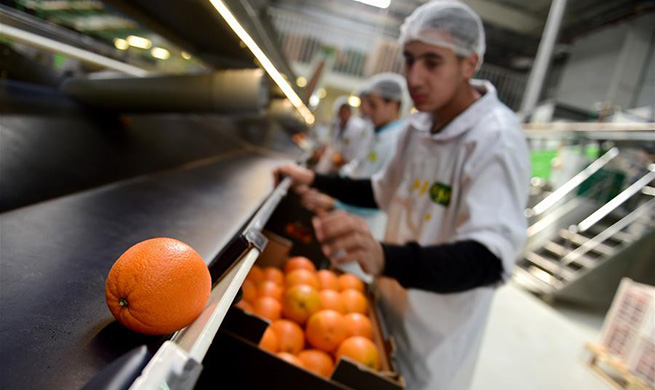WASHINGTON, Jan. 31 (Xinhua) -- Scientists at Columbia University has developed a prototype of lithium battery that allows remarkable flexibility, high energy density, and stable voltage no matter how it is flexed or twisted.
In the study, published on Wednesday in Advanced Materials, engineers get inspiration from human's spine, which is highly distortable but mechanically robust, as it contains soft marrow components that interconnect hard vertebra parts.
Yang Yuan, a material scientist, and his colleague used the spine model to design a battery with a similar structure. Their prototype has a thick, rigid segment that stores energy by winding the electrodes ("vertebrae") around a thin, flexible part ("marrow") that connects the vertebra-like stacks of electrodes together, which provides excellent flexibility for the whole battery.
"As the volume of the rigid electrode part is significantly larger than the flexible interconnection, the energy density of such a flexible battery can be greater than 85 percent of a battery in standard commercial packaging," Yang explains.
The researchers say the battery's energy density is limited only by the longitudinal percentage of vertebra-like stacks compared to the whole length of the device, which can easily reach over 90 percent.
The battery shows stable capacity upon cycling, as well as a stable voltage profile no matter how it is flexed or twisted.
"Our spine-like design is much more mechanically robust than are conventional designs," Yang says. "We anticipate that our bio-inspired, scalable method to fabricate flexible Li-ion batteries could greatly advance the commercialization of flexible devices."
















